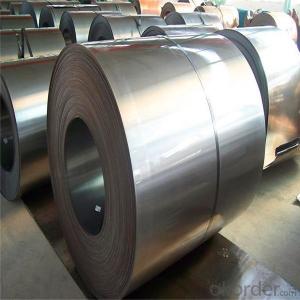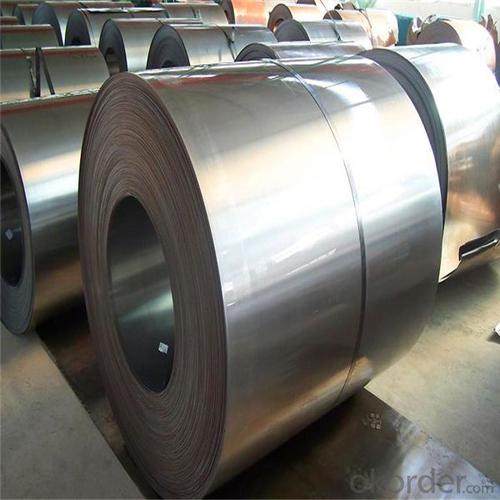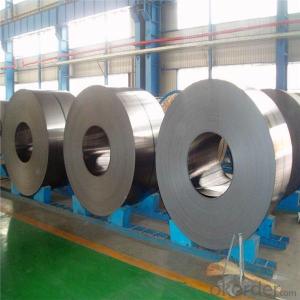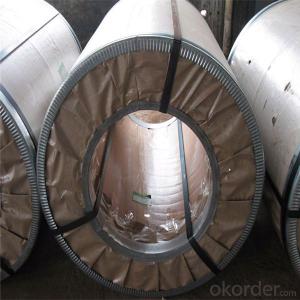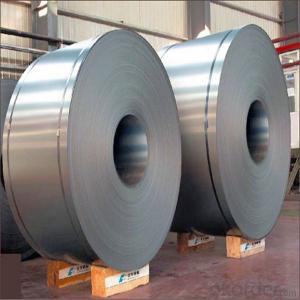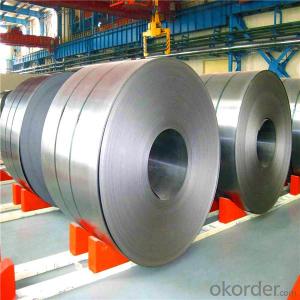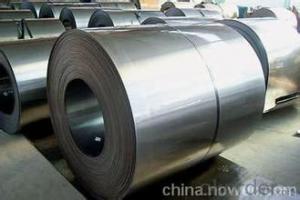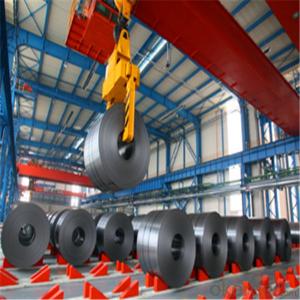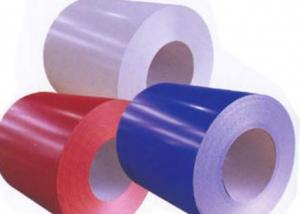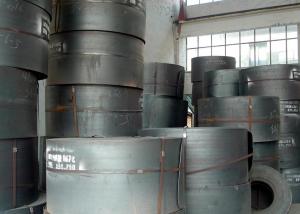High Quality Surface Finish Cold Rolled Stee/China Supplier
- Loading Port:
- China main port
- Payment Terms:
- TT OR LC
- Min Order Qty:
- 20 m.t.
- Supply Capability:
- 50000 m.t./month
OKorder Service Pledge
OKorder Financial Service
You Might Also Like
Specification
Prime Quality SPCC Cold Rolled Steel Sheet/Coil
Widely used to appliance,automobile industry or other decoration usage.
Certificate: ISO9001
Packing Details: Wrapped by water proof paper and plastic film.Covered with iron sheet,strapped by steel strips to protect the damage under transportation.
Details please check following format
Brief Introduction
Cold rolled steel coil is steel that has been worked below its recrystallization temperature by passing it between a pair of rollers. Recrystallization temperature is the temperature at which grains in the lattice structure of the metal have been rearranged, leaving it free of strain and deformations. Cold rolled steel coil is pre-treated before being cold rolled with a process known as pickling, which uses strong acids to remove scale and other impurities. The cold rolled steel coil is then passed through rollers to reduce its thickness. Most cold rolling takes place in multiple passes and as the size of the cold rolled steel coil is further reduced, its strength and hardness both increase, but its ductility decreases. After cold rolling, heating the metal up in a process known as annealing can restore some of its ductility. The final cold rolled steel coil may be manufactured in the form of sheets, strips, bars, or other forms.
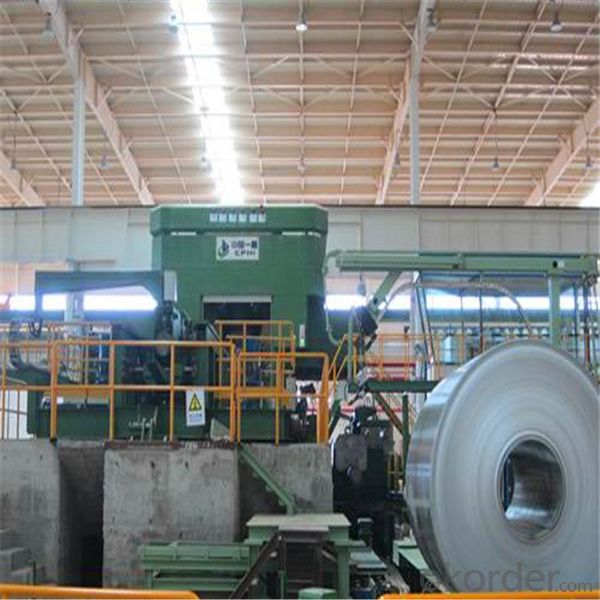
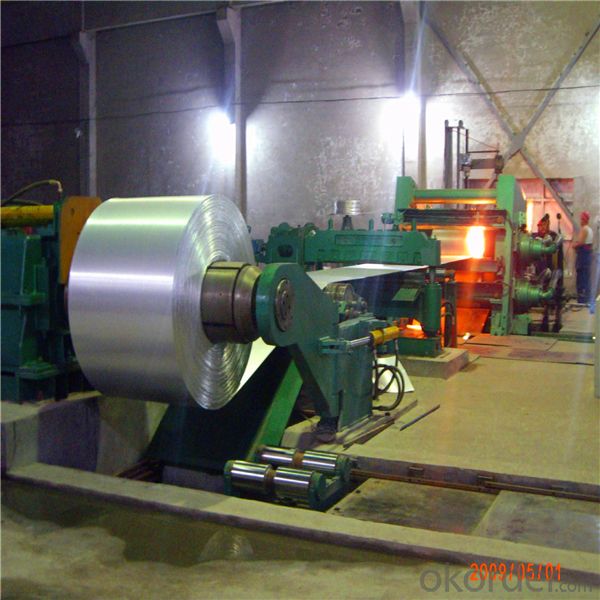
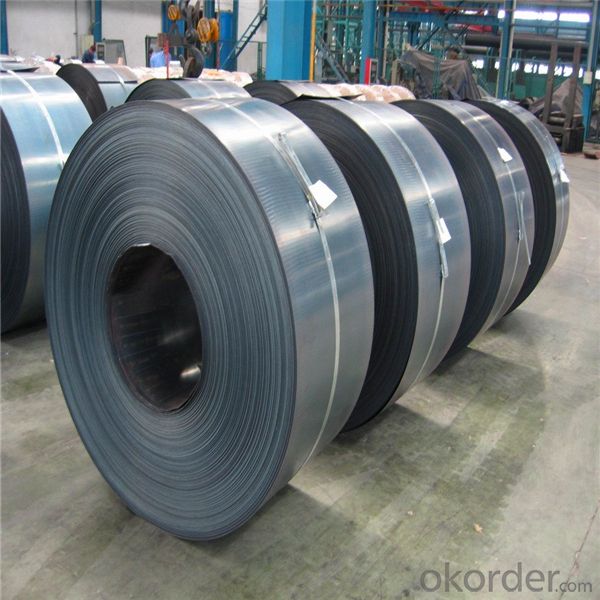
Specification
1. Thickness: 0.4-2.0mm
2. Width: 900-1250mm
3. Inner Diameter: 508mm
4. Weight of Steel Coil: 3-15MT
5. Heat Treatment: Annealed
6. Margin Status: EC & EM
7. Surface Quality: FB&FC
8. Surface Status: SB & SD
9. Surface Treatment: Oiling
Mechanical Properties
1. Yield Strength: ≤320MPa
2. Tensile Strength: ≤370MPa
3. Elongation (L=50mm, b=25mm) When:
(1) Nominal Thickness<0.25mm: 30%
(2) Nominal Thickness 0.25mm-<0.40: 32%
(3) Nominal Thickness 0.40-<0.60mm: 34%
(4) Nominal Thickness 0.60-<1.0mm: 36%
(5) Nominal Thickness 1.0-<1.6mm: 37%
(6) Nominal Thickness >1.6mm: 38%
FAQ:
1. Q: Where is your company located? How can I visit there?
A: Our company is located in Beijing, China. Welcome to visit us.
2. Q: Can I get sample and how long will it take?
A:Yes. We can supply sample. And you need to pay for courier.
3. Q: What's the MOQ?
A: Our MOQ is 25mt.
4. Q: What's the delivery time?
A: It will take about 30 days after TT or L/C.
5. Q: What is the payment terms?
A: T/T, L/C at sight
6. Q: How does your factory carry out quality control?
A: We attach great importance to quality control.Every part of our products has its own QC.
7. Q: What certificate do you have?
A: We have SGS, ISO9001 etc.
- Q: How are steel products used in the railway industry?
- Steel products are extensively used in the railway industry for various applications such as rail tracks, train wheels, and locomotive frames. Steel's high strength and durability make it ideal for supporting heavy loads and withstanding the constant stress and impact caused by moving trains. Additionally, steel's resistance to corrosion ensures a longer lifespan for railway infrastructure, reducing maintenance costs. Overall, steel products are crucial components that contribute to the safe and efficient operation of the railway system.
- Q: What are the uses of steel grating in walkways and platforms?
- Steel grating is commonly used in walkways and platforms due to its numerous benefits. Its primary purpose is to provide a secure and slip-resistant surface, ensuring the safety of individuals walking or standing on it. Additionally, steel grating offers excellent durability, withstanding heavy loads and extreme weather conditions. Its open design allows for efficient drainage of water, debris, and other substances, preventing the accumulation of slippery or hazardous materials. Moreover, steel grating is highly versatile, suitable for various applications such as industrial plants, commercial buildings, and public areas, making it an ideal choice for creating sturdy and functional walkways and platforms.
- Q: How is steel used in the production of musical instruments?
- Steel is commonly used in the production of musical instruments to create components such as strings, keys, and valves. It provides strength, durability, and a clear, resonant sound, making it ideal for instruments like guitars, pianos, trumpets, and saxophones. Additionally, steel can be shaped and molded into various forms, allowing for intricate designs and precise tuning capabilities in instruments.
- Q: What are the different types of steel bolts and their uses?
- There are several different types of steel bolts, each designed for specific uses. Some common types include hex bolts, carriage bolts, and anchor bolts. Hex bolts are used for general applications and have a hexagonal head. Carriage bolts have a smooth, rounded head and are often used in woodworking applications. Anchor bolts are used to secure structures to concrete and come in various shapes, such as L-shaped or J-shaped. Other types of steel bolts include eye bolts, U-bolts, and flange bolts, each with their own unique purposes and applications.
- Q: What are the common uses of steel in the mining industry?
- Steel is commonly used in the mining industry for various applications such as structural support in mine shafts, equipment fabrication, and manufacturing of machinery and tools used in mining operations. It is also widely used in the construction of mining infrastructure like pipelines, storage tanks, and transportation vehicles due to its strength, durability, and resistance to corrosion.
- Q: How does steel pipe threading for fire sprinkler systems work?
- Steel pipe threading for fire sprinkler systems involves the process of cutting threads into the ends of steel pipes to create a secure and leak-proof connection. This threading is typically done using a specialized machine called a pipe threader, which cuts precise grooves into the pipe's outer surface. These threads allow the pipes to be joined together using fittings, such as couplings or elbows, to form a complete fire sprinkler system. The threaded connection ensures that the pipes are tightly sealed, preventing any water or pressure leakage, thereby ensuring the effectiveness of the fire sprinkler system.
- Q: How is steel tubing used in the production of bicycle frames?
- Steel tubing is commonly used in the production of bicycle frames due to its strength, durability, and versatility. The tubing is typically cut, shaped, and welded together to form the main structure of the frame. This allows for a lightweight yet sturdy frame that can withstand the rigors of cycling. Steel tubing also provides a comfortable ride by absorbing road vibrations and offering a smooth and responsive feel.
- Q: How do steel products contribute to the construction of theme-based cultural heritage sites?
- Steel products contribute to the construction of theme-based cultural heritage sites in various ways. Firstly, steel is a versatile material that can be shaped and molded into various structural components, allowing architects and designers to create intricate and unique designs that reflect the theme of the cultural heritage site. Additionally, steel is known for its strength and durability, making it suitable for supporting large and heavy structures such as domes, arches, and towers, which are often key elements of theme-based cultural heritage sites. Furthermore, steel's resistance to corrosion ensures the longevity of these structures, reducing maintenance costs and preserving the site's authenticity for future generations to appreciate. Overall, steel products provide the necessary strength, flexibility, and durability required to construct theme-based cultural heritage sites that capture the essence of a specific culture or historical period.
- Q: How is steel used in the production of industrial boilers and pressure vessels?
- Steel is used in the production of industrial boilers and pressure vessels due to its strength and durability. It provides the necessary structural support and can withstand high temperatures and pressures. Additionally, steel is resistant to corrosion, making it ideal for containing and heating various substances in industrial processes.
- Q: How do steel products contribute to sustainability and environmental protection?
- Steel products contribute to sustainability and environmental protection through various ways. Firstly, steel is highly durable and long-lasting, reducing the need for frequent replacement and therefore minimizing waste generation. Additionally, steel is a highly recyclable material, with a recycling rate of around 90%, which helps to conserve resources and reduce energy consumption compared to producing new steel. Moreover, steel has a high strength-to-weight ratio, allowing for lightweight designs and efficient transportation, which leads to lower fuel consumption and greenhouse gas emissions. Lastly, steel products can be designed to be energy-efficient, such as in the construction industry where steel structures can provide better insulation, reducing energy consumption for heating and cooling. Overall, steel products contribute to sustainability and environmental protection by promoting resource conservation, waste reduction, energy efficiency, and lower emissions.
Send your message to us
High Quality Surface Finish Cold Rolled Stee/China Supplier
- Loading Port:
- China main port
- Payment Terms:
- TT OR LC
- Min Order Qty:
- 20 m.t.
- Supply Capability:
- 50000 m.t./month
OKorder Service Pledge
OKorder Financial Service
Similar products
Hot products
Hot Searches
Related keywords
